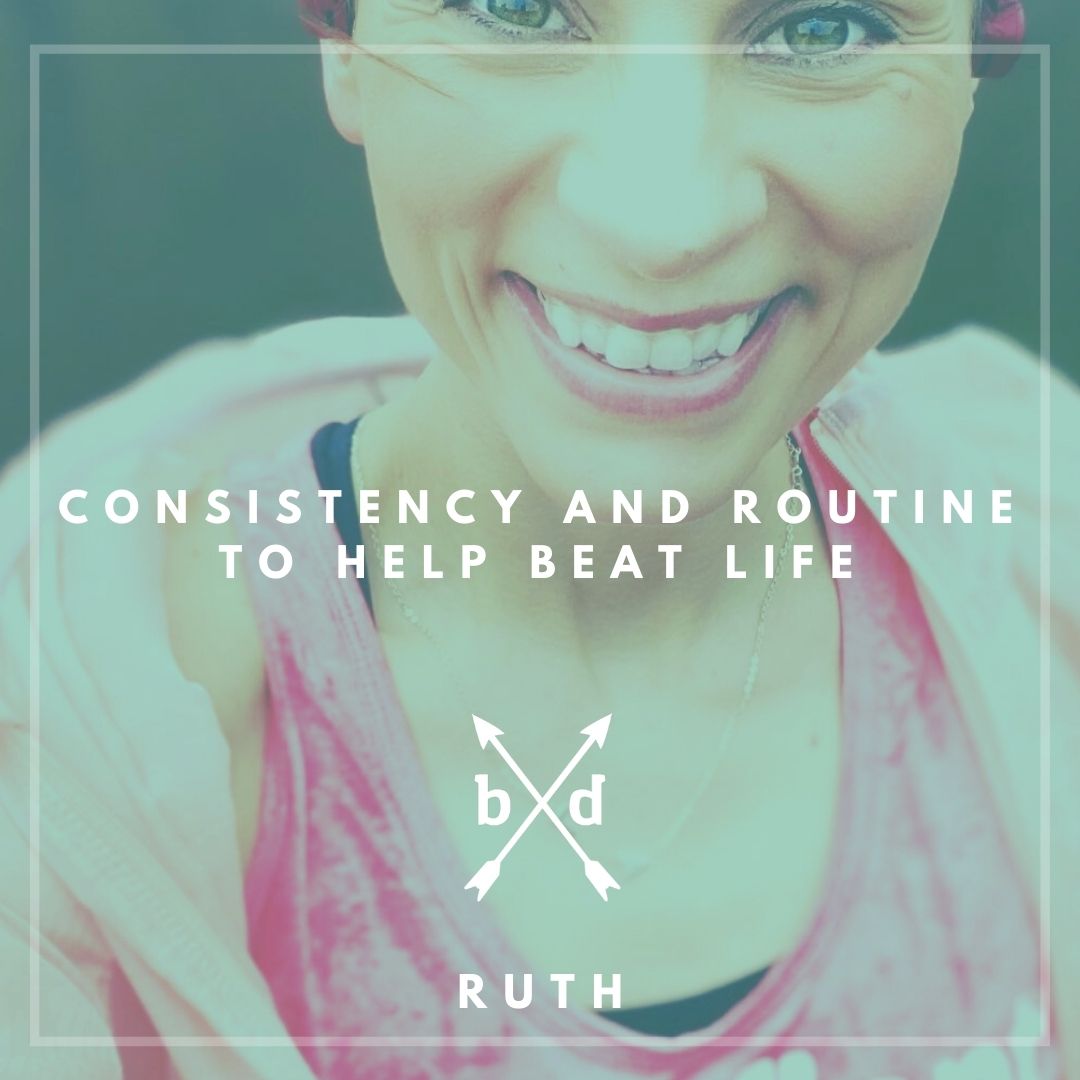
How Routine Helps Ruth Stay On Top Of Her Mental Health
In this post, we speak with Ruth. A runner, a mother and a teacher, as well as somebody suffers with mental illness. Here, she talks to us about the importance of consistency, and how that improves her quality of life.
Running has always been my ‘therapy’ with a small t. Obviously it’s not actual therapy and I think when we say things like that it can be mistaken for the implication that running solves mental health issues, which of course it doesn’t. Real and proper therapy does that, alongside other things. But what I do know is that for me, being active means I can cope with day to day life better, if gives me the mechanisms to respond better and more constructively to life challenges and it gives me headspace from my job, my life, even my family in the nicest way possible, so that I return from a run or a workout a stronger person, a (slightly) more patient Mum, and hopefully a more productive teacher from time to time.
How Building A Routine & Using Consistency Helps My Mental Health

For me, consistency and routine help me deal with life and that’s why I like to follow a plan for my running and my strength training, but this can come with a cost. It can make you feel second best of failing when you don’t achieve a workout, and it can mean you are comparing yourself to another imaginary version of ‘you’ where you never miss a session, where you hit the pace, where you completed all the reps in a strength plan. So I think it can be about achieving a balance between feeling proud and successful when you achieve a goal and a session, but also being kind and adaptive enough to yourself (especially at the moment), when things don’t go to plan.
How Getting Covid-19 Made Me Feel Guilty
For me, getting Covid was a very difficult time, not just because I was unwell, but because of the isolation and inactivity it caused. I will always, always feel guilty for not moving, not exercising. And as well-intentioned as people were, the most common response to someone who is unwell (perhaps especially with Covid as it carries extra, unknown, fears in all of us) is to tell people to rest. Which is kind and caring, but for me, quite difficult. Let me say, it is totally correct. To recover as quickly and as well as possible from Covid, rest is essential. But actually for me, to be reminded of this was hard. I am quite claustrophobic too as a person (as a result of being stuck in a lift when I was 12) and so as much as I am lucky to have a nice house and garden, I still felt trapped, I still struggled with all the emotions that can bring. So sometimes I found this well-intentioned response quite difficult.

For me, this time was about extreme patience with myself. It was about reducing my goals to very small but achievable things. It was about actual ‘self-care’ – reducing screen time, eating well, acknowledging how I felt and trying where possible to talk to people about this. These things really helped. As I recovered, I also added activity in but I was very, very careful to make this small and manageable to. I found that even 1,000 steps around the house, slowly, was better over the day than just sitting still. I had to listen to my body much more than normal. As an endurance runner I am used to ‘pushing through’ the pain barrier, and learning to ignore that both mentally and physically was tough.
Less Pressure Makes For A More Sustainable Life
However, what I would say, is I think learning these things about myself and the coping strategies I developed, have been massively useful to me. I think I take a ‘softer’ approach to training now – I still have very high expectations of myself, but I recognise the benefits of not always training at absolute max level, and I recognise that training the mind to listen to the signals of the body is so important. I have learnt that my body has been affected by Covid in terms of the pace I can run, but I am able for the first time in ages to measure success in other ways – for example, did I actually ENJOY that run, did it help my head? And that’s sometimes far better than pace or possible race success.
I do believe in finding the positives in tough situations and Covid has taught me that I am tough, I can deal with things a year ago I would not have believed I could. It’s also taught me to recognise that I am not always ok and be more ok with saying that (sometimes, anyway). I have also gained a support network online with others who have been through this experience too, and as always sharing common experiences is so helpful and I am so grateful for that. It has changed me in many ways, but not all of them can be seen and they are certainly not all negative. Now to look forward to the day when I can remind myself of all of this at a start line to a race and use it to beat my old self… every day is a step closer to this happening and I can’t wait.


Leave a Comment